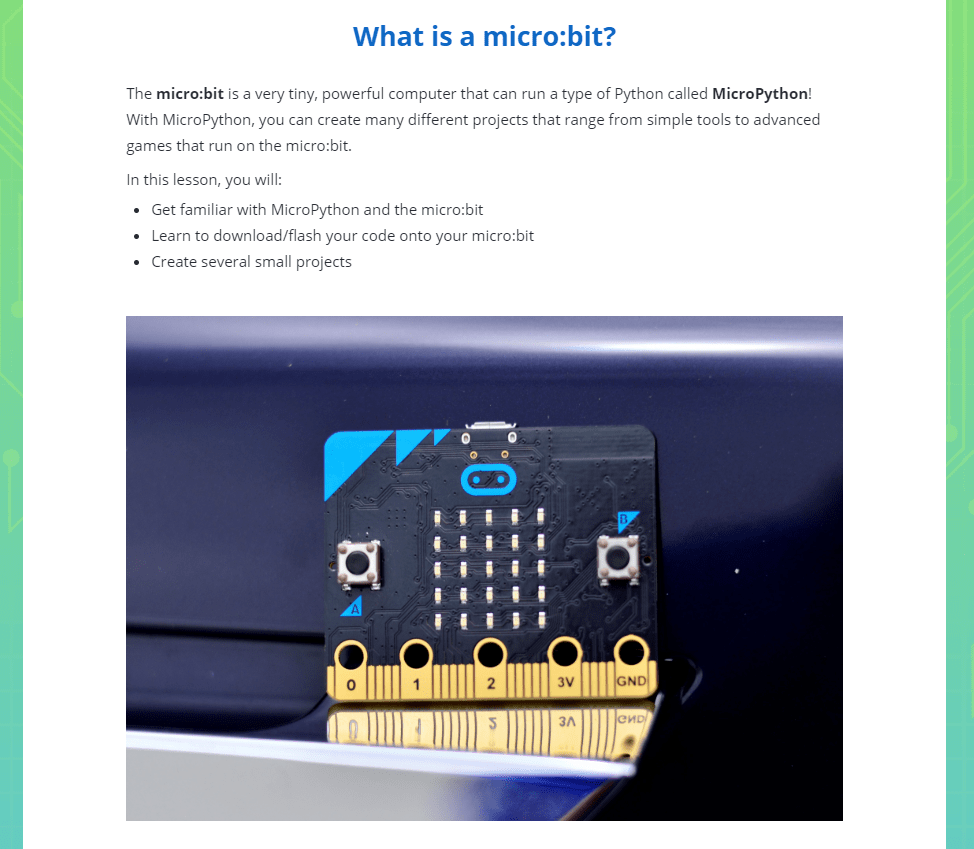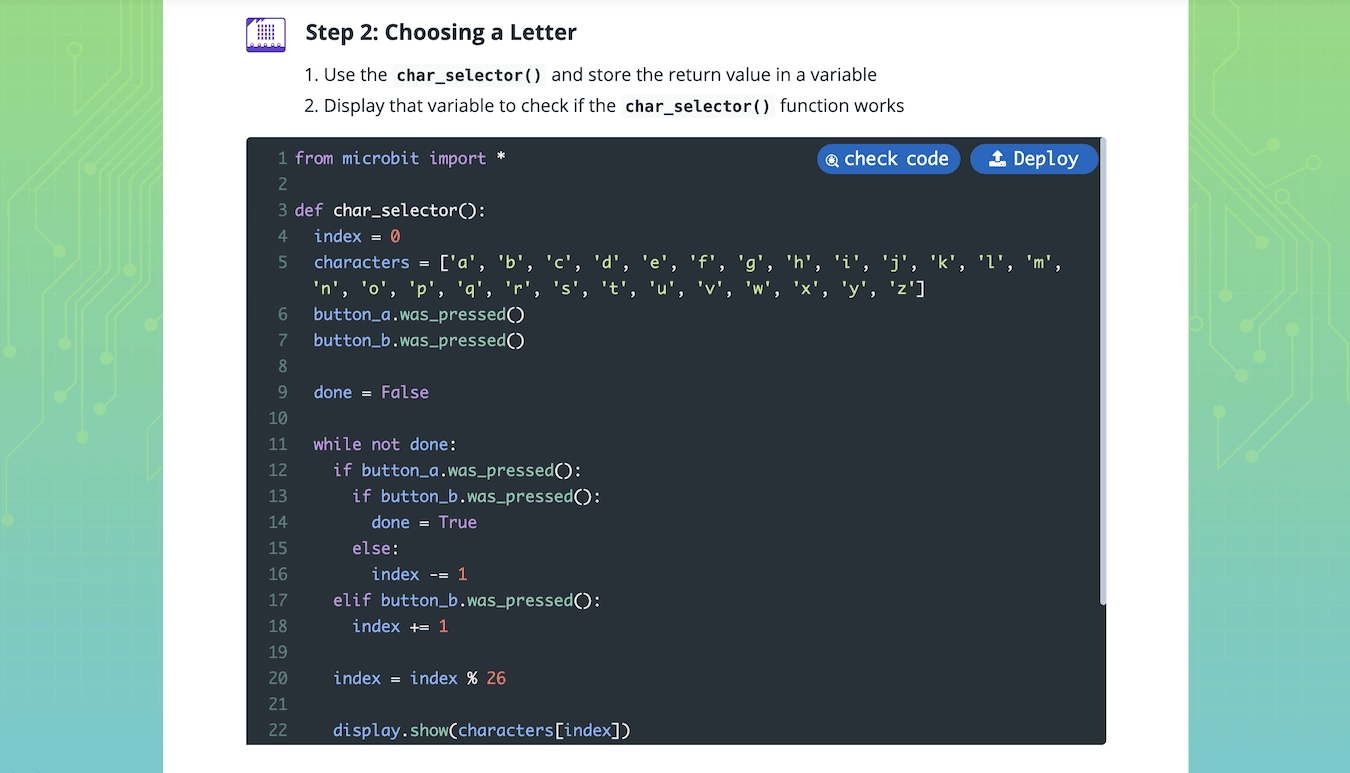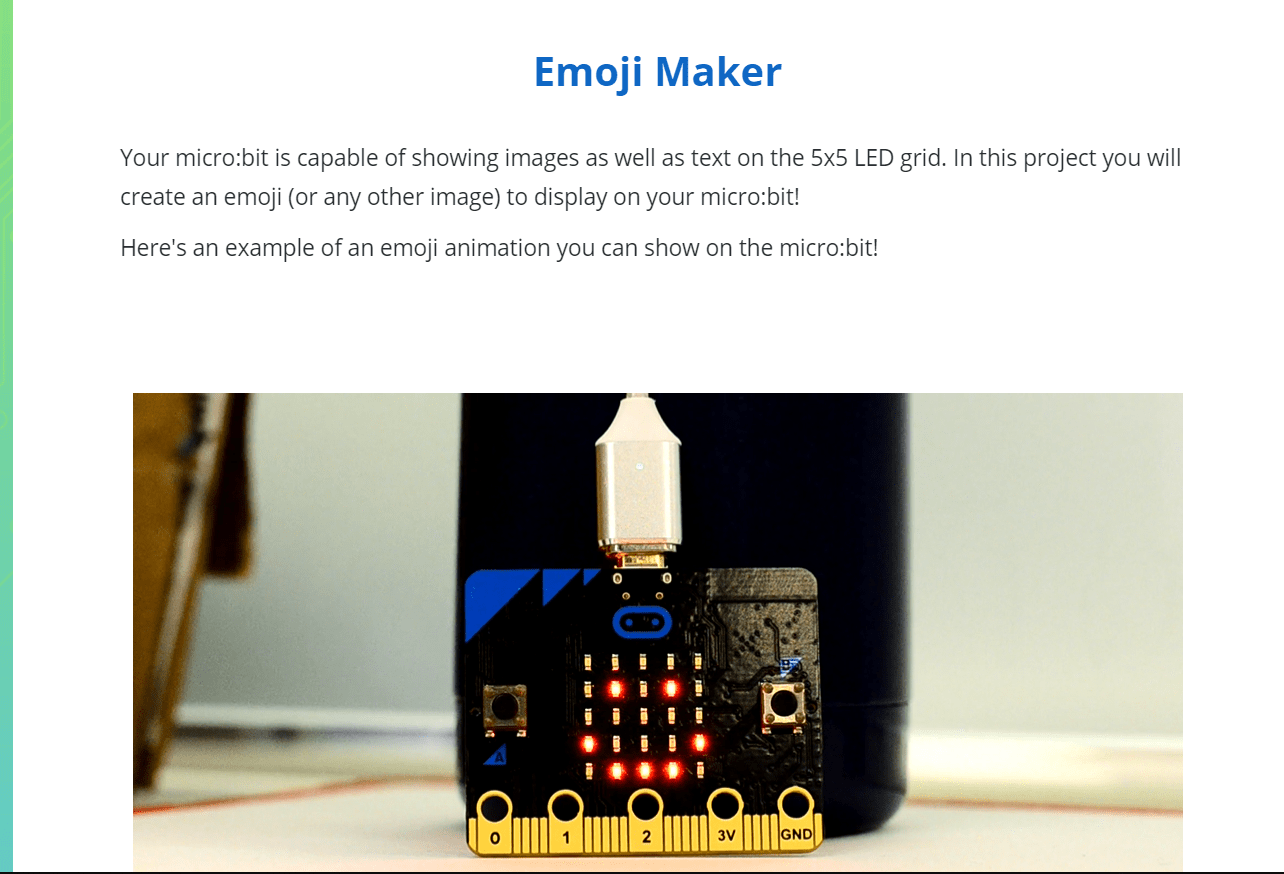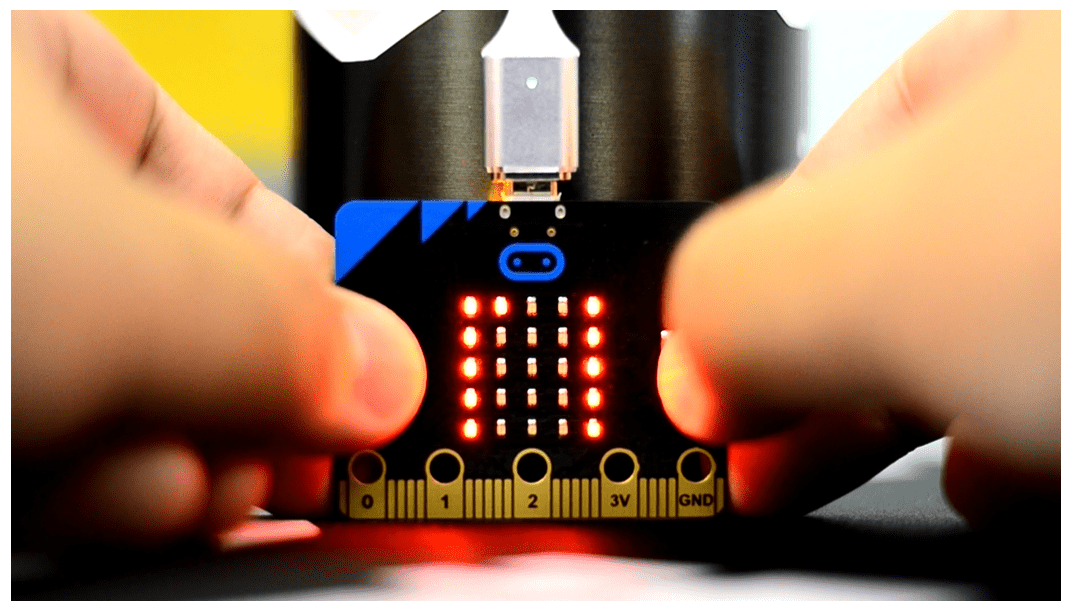MicroPython Studio
- GRADES 7+
- ADVANCED
- WEB
- 14 LESSONS
Description
Introduce your class to physical computing with micro:bit and MicroPython. This course is an advanced introduction to micro:bit and requires prior Python programming knowledge. The curriculum engages campers as they see their abstract programs come to life on a tangible physical device that they can control with their hands. Using built-in micro:bit sensors, buttons, and the 5X5 LED display, campers build animated LED emojis, real-world temperature sensors, pedometers, multiplayer games, and even a two-way Morse code radio.
The course includes 16 hands-on projects with step-by-step instructions. It is delivered in an interactive notebook-style lesson format so that campers can learn new concepts, write programs, and deploy code to the micro:bit right from the lesson interface. There is nothing to download or install on your computer. In addition, campers can also launch Tynker Code Editor and write their own programs from scratch.
The lesson plans in this course build and reinforce STEM skills, problem solving, debugging, and collaboration skills as campers bridge digital and physical learning. Students wiil apply abstract programming concepts to create tangible hands-on micro:bit-based inventions.
Each lesson is designed for a class period of 45-60 minutes. All campers work is automatically tracked and assessed, and you'll be able to monitor individual progress and mastery charts for your campers.
This course is recommended for advanced campers who are already familiar with Python. Beginner campers may enroll in micro:Bit 101 where they use Tynker Blocks to program micro:bit.
This course is supported online and not supported on iPad.
Recommended Accessories: This course requires micro:bit devices (not included). You may purchase these separately at a variety of resellers. Each lesson has a detailed Parts List.
- micro:bit, USB cable, Battery pack, 2xAAA batteries (for each camper or group)
- Accessories: Lessons 13, 14 require a Piezo speaker and Alligator clips
- Lessons 15,16 require two or more micro:bits
- Optional: microBit Inventor’s Kit: Classroom Pack (includes accessories required for all lessons)
While most lessons need a single micro:bit, it is encouraged that campers improvise to create inventions that incorporate external cables, LEDs, speakers, aluminum foil, and other accessories, when available.
See the this section on the micro:bit foundation for more ideas!
Topics Covered: micro:bit Python commands, 2-way radio communication, deploying code to the micro:bit, light and temperature sensing, reading sensor values, gestures and motion detection, Programming the LED grid, multiplayer game development







What Students Learn
- Display animations on the micro:bit LED
- Create classic arcade games on the micro:bit
- Create a pedometer by detecting steps
- Build a prime number checker
- Program a loaded die that always rolls 6
- Detect button clicks and other events
- Create multiplayer games using the radio
- Build a soundboard to play musical notes
- Extend the project to the physical world
Technical Requirements
* Online courses require a modern desktop computer, laptop computer, Chromebook, or Netbook with Internet access and a Chrome (29+), Firefox (30+), Safari (7+), or Edge (20+) browser. No downloads required.